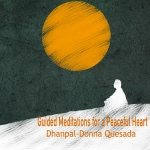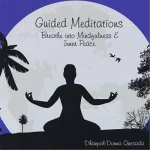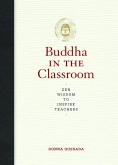
Spiritual Ignorance—
What we call “spirituality,” in all its many guises and paths, is really all the same thing… getting closer to God. Or, better, realizing that we were never separate, in the first place. Hence the expression, “self-realization.” We can also call this “vibrating with source,” or “being twice born,” or “satori” … it doesn’t much matter what we call it, as it’s all about overcoming that sense of separation, which Buddha called avidya.
Although avidya translates as ignorance, it is not ignorance in the usual sense, rather it is the state of being unaware of the abiding connections between all of us and between everything (‘though there really are no “things”) in the universe. We can experience the feeling of connection in myriad ways, for example, through any creative endeavor, through deep encounters with nature, and through authentic connections with other people and animals.
Every spiritual path is built around the need to overcome ignorance and cultivate a sense of deep connection with all that is.
Why is it so important?
Because without it, we will have an ego-driven world, devoid of considerateness, and full of self-centered behavior.
Sounds a lot like narcissism.
Disclamer—
I wouldn’t be so bold as to say that the only difference between garden variety ego and diagnosable Narcissistic Personality Disorder is the location of where it falls on a spectrum, as there is still much to be learned about the brain and genetics and whatever else may be at work, physiologically and chemically, in producing psychological disorders. So, I will speak as an interested scholar, as a lifelong spiritual student and teacher, as well as someone who has been in relationship with others who embody and display narcissistic behaviors.
Narcissism and the Spiritual Path—
If the spiritual path is marked by the extent to which we become aware of our inherent divine nature, which the unchecked dominance of ego blocks out, then narcissism may be seen as a kind of chronic disunion. This is displayed as lack of empathy, which is always listed as its telltale, defining feature.
Without self-awareness, the narcissist will be oblivious to his/her behavior and how he/she is “coming off” to others. Thus, the narcissist will speak and act in offensive ways, and will be chronically lacking in thoughtfulness, due to the unchecked hyper-focus on his/her own needs, moods and whims.
This tendency may be displayed through disrespectful or inconsiderate communication styles, as well. For example, through a lack of ability to listen to the other, or persistent tendency to interrupt. This comes from either a conscious or an unconscious belief that his/her commentary is more important than anyone else’s, or a childlike lack of self-control.
Vulnerability—
The ability to be vulnerable is inextricably connected up with overcoming ignorance because without it, there is no true human connection being made. And without connection, there is no empathy.
A relationship with a narcissist is always described as one which entails unavoidable feelings of neglect and disappointment, since your needs, as the narcissist’s partner, will not be recognized. The lack of empathy bars this. This is why, besides “lacking in empathy,” the narcissist is often described as acting out of a “sense of entitlement.” This manifests when their need for comfort predominates, to the extent that the narcissist expects others to always accommodate them, eg, food choices, etc., without the genuine desire or ability to reciprocate and sacrifice for others, in turn.
In reflecting on the notion of vulnerability and its importance in cultivating authentic and safe-feeling relationships, I believe that the absence of it is an effect, rather than a cause of the existent narcissism. A narcissist is too afraid to ever let himself/herself be open and vulnerable.
And if vulnerability is by nature a spiritual quality in that it enables true closeness and connection, then without it, a relationship with a narcissist can never be spiritually fulfilling in an enduring and ever-maturing way.
In Summary—
The relationship with the narcissist will be chronically impaired because of the inability to compromise, make concessions and sacrifice for another.
Spiritually, if connection is our ultimate purpose and source of fulfillment here on earth, then the ability to be vulnerable is requisite. It entails the capacity, courage and emotional maturity to be truly open with another and further, to be in touch with others, in a way that reflects a true sense of concern about the other’s needs, comfort and well-being. The narcissist’s lack of maturity and insecurity, which lies below the gruff facade, keeps him/her stuck at the level of his/her own needs. This is avidya.









